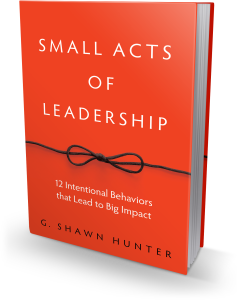Let’s Stop Telling Each Other How Busy We Are
“If you’re racing to the next moment, what happens to the moment you’re in?”
– Nanette Mathews
Do you remember what you did last Tuesday? Where were you? Who did you talk to? Did anything memorable happen? Sometimes our days blend into one another. It can often feel like the clock is spinning furiously. Days come and go, and what do we remember? What happened to the time?
Did you know the word “time” is the most used noun in the english language? We are obsessed with time, and cherish those languid moments that seem to go on and on. It’s quite easy to recollect your family camping trip, or the time you learned to surf while on vacation. Novel experiences feel elastic in our minds.
Deep conversations can also be like travel, if you let them. Think of a conversation as an opportunity to venture into new experiences. This also explains why often your best conversation partner is the person who knows how to ask good questions. They know how to get you to explore ideas in more meaningful ways.
If our days become more routine, and our habits more ingrained, we experience less novelty. As a result, we often seek out experiences and interactions that reinforce what we know. And what we do, and experience, can start to feel like same ‘ol, same ‘ol. And the reason it feels like same ‘ol is because we’re not creating new memories. We’re having the same conversations, seeing the same sights, enduring the same meetings.
“I like cancelled plans. And empty bookstores. I like rainy days and thunderstorms. And quiet coffee shops. I like messy beds and over-worn pajamas. Most of all, I like the small joys that a simple life brings.”
Several years ago, a couple friends and I took our teenage kids cycling across America. After only a few days into our two month journey, time started to elongate such that each moment, each conversation was expansive, indelible. And why? Because literally everything we were experiencing was new. We were recreating those childhood experiences of novelty.
To slow down time, try to build novelty into your day. Talk to someone new, cook something unusual, take the dogs walking someplace different. Researchers have found that we remember familiar experiences as shorter, and unfamiliar experiences as longer.
“Unless people experience major changes that break the routine in their lives and provide them with anchors to retrieve from memory, life can become one short, timeless sequence of routine inaction.”
– Avni-Babad and Ritov
Another activity that will slow time, is to dig into a meaningful project. Pick a project in your life and lean into it – your painting, your running, your writing, your French lessons, whatever. When we begin to make meaningful progress in something that is important to us, we get closer and closer to that elusive Flow State when time slows down, and things start to feel fluid and easy.
Most of all, breathe.
____________________________________________________
Our company Mindscaling, is busy building powerful online micro-learning experiences to drive the human change that propels your team. You can find our catalog of high-impact courses here. And if you want something more tailored, you can learn about our custom work here.
My book Small Acts of Leadership, is a Washington Post bestseller! You can grab a copy now.
And if you want to learn to apply some of these ideas and be an effective coach for your team, we wrote a course on that too. It’s called Coaching for Managers available over at UDEMY for Business.



